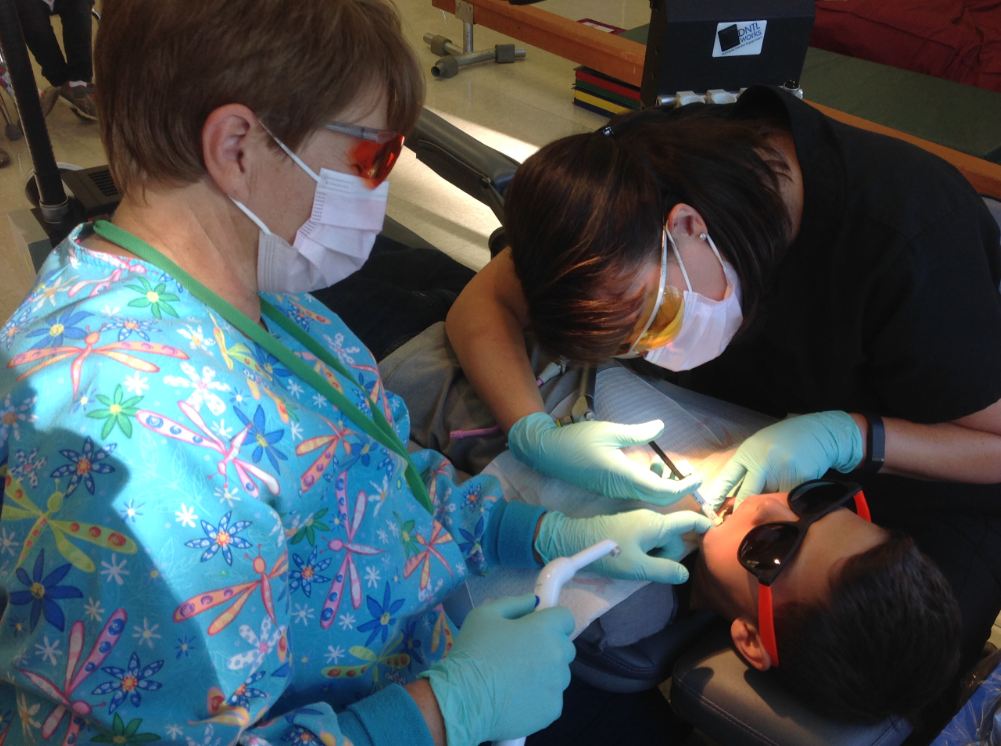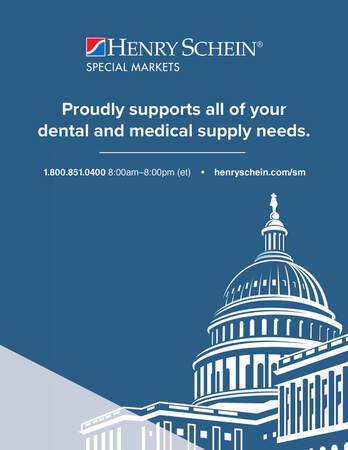 Photo courtesty of the Wisconsin Vilas County Public Health. Photo courtesty of the Wisconsin Vilas County Public Health.
Oral Health
Recognizing the CDC Dental Public Health Residency Program The aim of the CDC Dental Public Health Residency Program is to produce skilled specialists in dental public health who can work collaboratively with their public health and dental colleagues in an array of health settings to achieve improved oral health for populations. Such positions could be located within:
This formal training program for dentists is located in Atlanta, Georgia. Each year, up to two qualified dentists are admitted into CDC’s Residency Program. The program usually starts in July of each year and extends over 12 months (full-time) or 24 months (part-time). Admission Requirements: 1. Applicants must have completed the following: A dental degree (DDS or DMD) from a U.S. dental school accredited by the Commission on Dental Accreditation or a Canadian school accredited by the Commission on Dental Accreditation of Canada. Applicants who are graduates of a school of dentistry outside the U.S. or Canada must be deemed to have equivalent education. For more details, please see the International Dentists section on the How to Apply page. 2. A Master of Public Health (MPH) or comparable degree from an institution accredited by an agency recognized by the U.S. Department of Education. Courses for the MPH or comparable degree would include biostatistics, epidemiology, health care policy and management, environmental health, and behavioral sciences. If the applicant’s public health training was completed in an institution outside the U.S., satisfactory completion of two or more years (full-time equivalent) of advanced education in an area related to the practice of dental public health is required. The same content areas described above apply to course work completed by public health graduates from outside the U.S. The Residency Training Plan: Instruction within the program follows an individualized training plan focused on competency objectives developed by the American Board of Dental Public Health. Each Resident develops a training plan based on prior education and experience. The plan addresses competencies to be developed or refined during the training program, activities designed to achieve these improved skills, and methods or criteria for evaluating progress. Both a supervised field experience and an applied research project must be included in the plan. While the plan accommodates individual differences and considers current issues, it emphasizes applying fundamental public health principles to prevent dental disease and promote oral health. Financial Considerations: No tuition or fees are required. Stipends for Residents are provided through CDC’s Regular Fellowship Program. This program is designed to encourage training for research and advancing science related to health. In 2018, program stipends ranged from $45,000 to $65,000, depending on the Resident’s prior professional experience. Although Residents in CDC’s Regular Fellowship Program are not federal employees, they can access a wide array of training resources and experiences. Interested employees of other federal agencies, including commissioned officers in the United States Public Health Service, can discuss their circumstances with the Residency Director. Residency Resources: CDC’s Dental Public Health Residency Program is sponsored by the Division of Oral Health, within the National Center for Chronic Disease Prevention and Health Promotion (NCCDPHP). NCCDPHP offers an abundance of learning opportunities and has programs addressing the prevention and control of cancer, diabetes, heart disease, and tobacco use, as well as programs focused on reproductive health, school health, aging, obesity prevention, and nutrition and physical activity. In addition, Residents will have access to the larger CDC community of programs and residents as well as other institutions and partner organizations to explore potential collaboration opportunities. CDC employs professionals who can contribute their expertise during the residency (e.g., dentists, statisticians, economists, epidemiologists, social and behavioral scientists, physicians, and specialists in health policy, health communication, and evaluation). Residents also have access to CDC resources including excellent library facilities, computer services, training courses, and frequent seminars and guest lectures on public health topics. For more information, please contact the Division of Oral Health, DPH Residency Director at E-mail: [email protected] Source: cdc.gov |
Healthcare professionals receiving our publications are invited to contact us about ideas for future editions and editorial submissions by emailing [email protected] or calling 813-286-8444
© 2024 Capital Publishing Inc - All Rights Reserved


